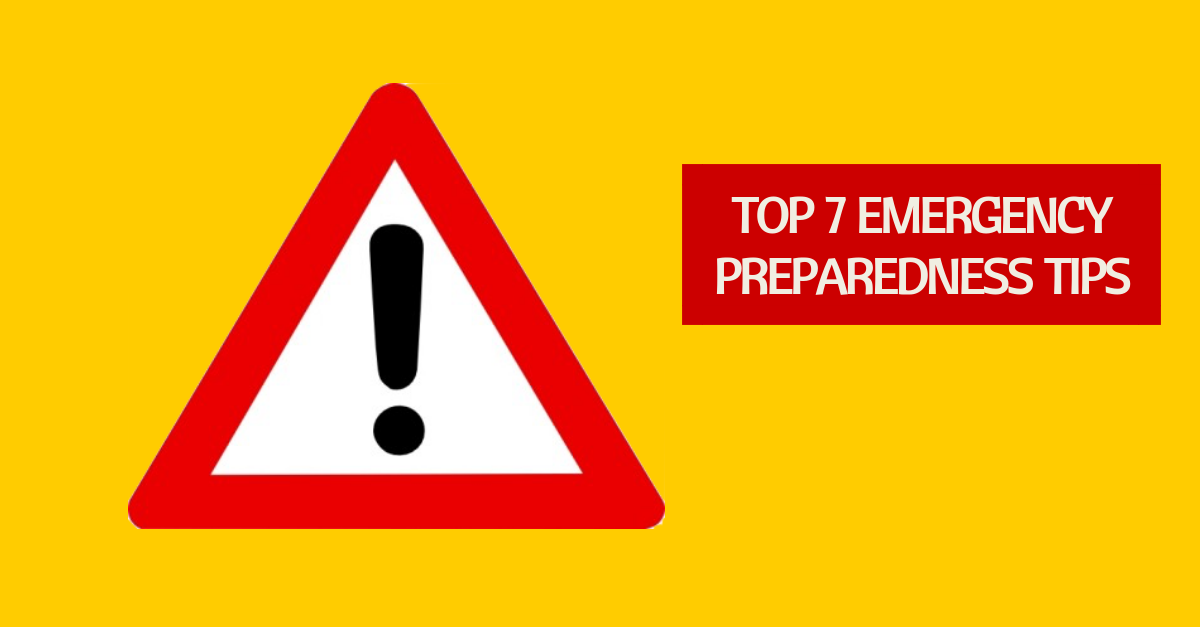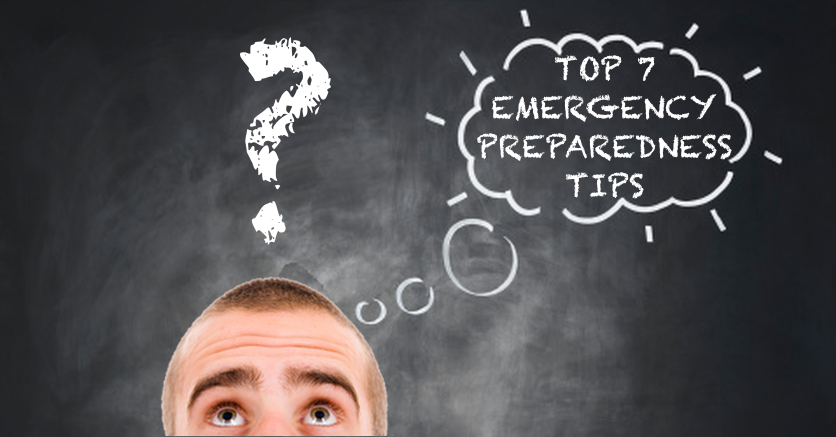
Top 7 Emergency Preparedness Tips
There’s no escaping it. Emergency Preparedness requires some preparation! But where to start? Well, here’s our top 7 emergency preparedness tips…

1. Remember to prepare for everyone in the home.
When you are putting together a plan to prepare in the case of an emergency, it is very important to remember to plan for not only yourself and your children, but also for your family pets and any guests who could potentially be with you at the time of the emergency. Many people fail to plan for their pets, and unfortunately many pets are lost each year as a result. Sometimes, you have to act in the best interest of the people, and there is nothing that you can do. But it is definitely worth putting together an emergency plan for your pets.
2. Have a written emergency plan.
Many people spend a lot of time putting together an actual emergency plan, but they never put it in writing. Well, in the case of an emergency there is a good chance that someone will miss a critical step in the process of evacuation, etc. Therefore – always have a copy of your plan for each member of the house. Perhaps the plan can be stored in a nightstand drawer with a flashlight.
3. Have meeting places lined up, and make sure that everyone knows where they are.
You should generally have three-five locations that everyone in the home knows about where you can meet up in the case of separation during an emergency. This could be a neighbour’s front yard, a local business and possibly a relative’s home a few miles away. This way, you will not have to wander around looking for family members because they too will make their way toward the pre-determined locations if communications are down.
4. Pick a relative who lives out of the area to coordinate communications in the event of a major emergency.
This is because often local calling is impossible during a disaster situation and long distance is easier. Make sure that everyone in your family knows to contact that person and how to get in contact with them. This includes the phone number, email address and physical address of the relative.
Want to Learn More About Emergency Planning?
Access your ‘101 Emergency Preparedness Tips’ now. Then use them as a checklist to be ready for any emergency.
Click here to access your Emergency eBook
5. Talk to your schools.
If you are a parent of school aged children, it is important that you know exactly how the school will react in the event of an emergency in the school or in the local area. Your school must have a written response plan, including information about how parents will receive information. You can contact the school via telephone to have questions answered, or you can request a copy of the emergency preparedness plan.
6. Store plenty of water in your home.
The recommendation is that you have around thirty gallons or 115 litres per person on hand at any time. This may be a bit more space than you can afford to give up. If you can store large containers of water for cleaning, flushing toilets and general use you will find the space requirement less. If you think this is too much water to be stored, stop and consider all of the ways that you use water each day. It disappears fast. Also consider a quality water filter that can turn pond or muddy water into pure drinking water.
7. Keep plenty of ready to eat food at home.
Foods that are stored in cans are airtight and waterproof. This makes them a good option in the case of an emergency. Canned food should be marked with a permanent market on the top or bottom in the event of labels being removed. Periodically check for expired food and buy replacements when necessary. Be sure to have a manual can opener on hand as well. However, a hassle free alternative is to have some freeze dried long life food stored. With up to 25 year shelf life you won’t need to worry about it expiring. That’s our top 7 emergency preparedness tips for you. We’ve got another 94 that you an use as a checklist to ensure you are well covered in any emergency situation.

